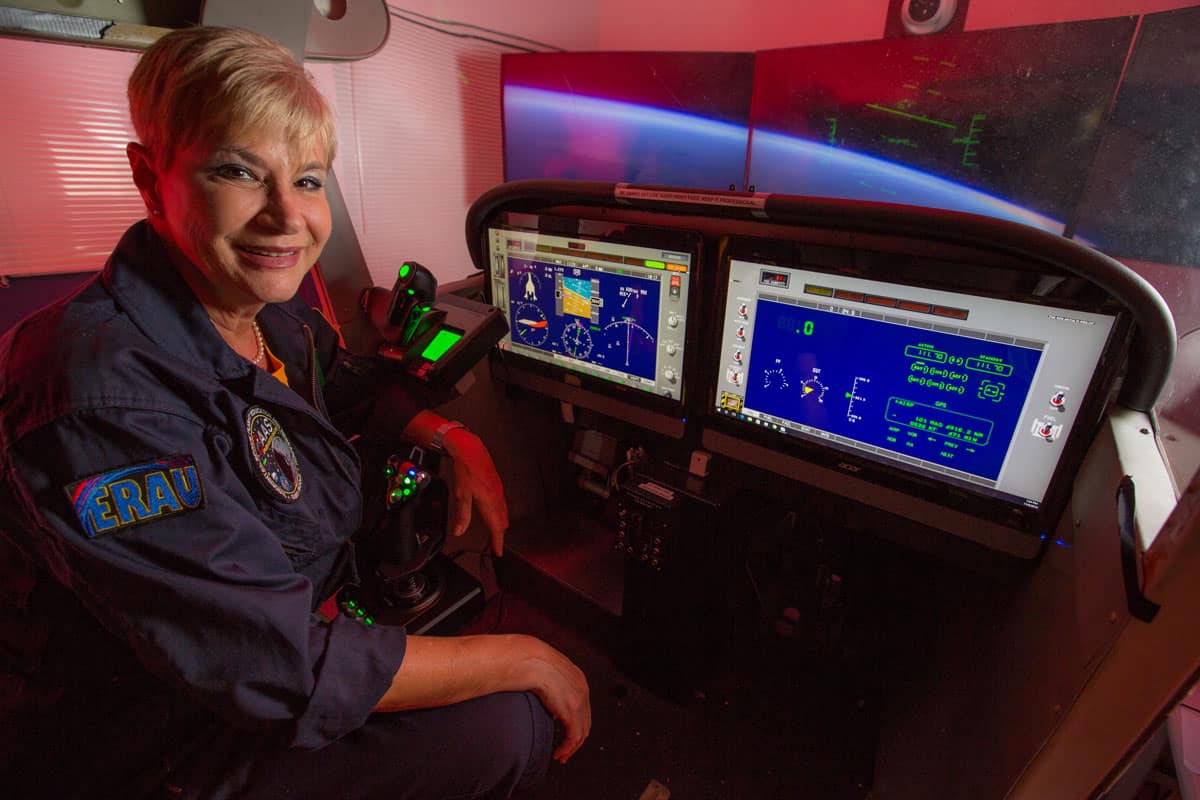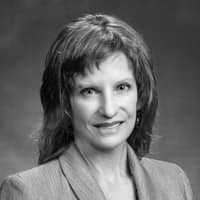Looming 'Wild West' Scenario in Space Raises Tough Questions, Expert to Report

The rapid development of small space-launch vehicles, designed to insert small satellites into orbit, could drive an equally swift increase in the number of small satellites in space, raising difficult legal, safety and environmental questions, Embry-Riddle Aeronautical University expert Dr. Diane Howard will report during the 2018 Transportation Research Board (TRB) Annual Meeting.
An assistant professor of commercial space operations, Howard, along with 12 other Embry-Riddle faculty members and students, will participate in the TRB meeting in Washington, D.C., to discuss topics ranging from space law, to equity issues in pedestrian safety and access, to unmanned aircraft systems and innovations in bridge construction.
Howard’s TRB session, scheduled for Sunday, Jan. 7, at 1:30 p.m. in the Washington Convention Center, will address “Growth in Small Launchers in the Commercial Space Industry.”
During an interview before her presentation, Howard noted that “a number of companies now have plans to use small launchers to establish constellations of small satellites in low-Earth orbit, which is already rather congested.”
Small launchers carry lighter payloads and require less power, making them an attractive option for the placement of satellites weighing less than about 1,300 pounds. Small satellites offer many benefits to society, but as they proliferate in space, they will generate additional space debris, increasing the risk of communications interference as well as collisions, possibly creating a “wild west situation,” Howard said.
The number of operational satellites in space has increased by 47 percent over the past five years, according to the Satellite Industries Association (SIA) 2017 annual report. Fifty-nine countries now operate satellites, the SIA has reported.
“We don’t yet have any rules of the road because there is no over-arching international authority that sets norms of behavior, much less tells space operators what to do when satellites get too close to each other,” Howard pointed out.
The U.S. Department of Defense provides information to help satellite operators avoid collisions. The Space Data Association also tracks satellites in orbit and notifies satellite operators of any risks. Yet, use of these services is not universal, Howard said, and increased space communications will also strain available communications bandwidth. The International Telecommunications Union (ITU), a specialized United Nations agency where stakeholder companies vote on important issues during its World Radiocommunication Conference every few years, has considered a special regulatory regime for communication by small satellites.
Howard said that countries as well as companies will need to be involved in finding solutions to emerging challenges in space. In addition to thoughtful policies, “companies need to be incentivized to design satellites responsibly so as to reduce space debris,” she said.
Having more nimble satellites in orbit can improve life on Earth by supporting real-time communication during disasters, communication in remote regions, and more. Howard added, however: “The idea is to make our behavior in space more responsible in order to improve safety, sustainability and communication.”
Topics to be addressed by other Embry-Riddle participants at the upcoming TRB meeting are as follows:
- Equitable access to services in large-scale pedestrian facilities (Ahmed Abdelghany, professor, College of Business)
- Unmanned aircraft systems (Daniel Friedenzohn, associate dean in the College of Aviation)
- Investments in in-flight services on airline profitability (Bijan Vasigh, professor of economics and finance, and Farshid Azadian, assistant professor, air cargo management)
- Impacts of low-cost, long-haul transatlantic flights on passengers’ choice of carriers (Jennifer Hunt, Embry-Riddle Worldwide student)
- Training challenges for low-altitude operations (Erin Bowen, associate professor of behavioral and safety sciences, Prescott, Ariz., campus)
- Mentoring and guidance in higher education (Scott Winter, assistant professor of doctoral studies)
- Freeway design capacity (Scott Parr, visiting assistant professor, civil engineering)
- Steel-concrete composite bridge construction (Dan Su, assistant professor, civil engineering)
- The Federal Aviation Administration’s UAS Integration Pilot Program (Tulinda Larsen, assistant adjunct professor, Embry-Riddle, and CEO and founder, Skylark Drone Research)
Embry-Riddle Professor of Aeronautics Alan R. Bender serves as the university’s official TRB representative.

 Ginger Pinholster
Ginger Pinholster